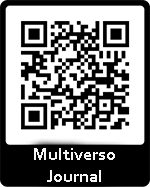Feminism as a gender condition for global bioethics
DOI:
https://doi.org/10.46502/issn.2792-3681/2023.4.5Keywords:
Bioethics, global bioethics, feminism, complex thought, neo-atheism.Abstract
With the objective of corresponding the political and social movement of feminism with the bioethical discipline, a systematic review of literature produced and generated in the Spanish, English and Portuguese languages in the period from 1970 to 2021 was carried out. With exploration in search engines and databases. Of virtual data, where a qualitative method was applied, with a descriptive approach, with the design of a review matrix instrument to apply a correlational method, from which two emerging categories were determined: complex thinking and neo-atheism. As a result of the review, it was concluded that feminism is a mass movement of a different nature, which germinated from the current defending the will and self-determination of women, whose theory has adapted to the changes in the situation that has allowed it to accept more equitable positions, to break patriarcal schemes where global bioethics has changed, supported by the theories of complex thought and neo-atheism, to invigorate its critical-revisionist nature and framed to produce changes, they will be recorded in the everyday reality.
References
Alvaro, C., & Osorio, S. (2014). La Bioética a la Luz de las epistemologías de segundo orden. El aporte crítico de Edgar Morin, Marià Corbí y Carlos Castañeda. Bogotá D.C.: Universidad Militar Nueva Granada.
Boscan, A. (2015). La Bioética Feminista y la Construcción actual del género. Revista Opción, 31(5), 162-188.
Castañeda, M. (2007). El machismo invisible regresa. Taurus. Penguin Random House Grupo.
De la Torre, J. (2010). Mujer, Mujeres y Bioética. Universidad Pontificia Comillas.
El Diario ABC de España. (2009). España. Sucesos. https://www.abc.es.
Feito, L. (2010). Aspectos Filosóficos de la Relación entre las mujeres y la bioética. En J. Torres. Mujer, Mujeres y Bioética (pp. 19-58). Universidad Pontificia Comillas .
Fonseca, E., & Alvaro, D. (2015). El método Podemos: marketing marxista para partidos no marxistas. Lineas libres .
Fundación Macarthur. (2001). Ideas feministas sobre bioética. Revista Estudios Feministas, 483-51.
León-Correa, F. J. (2008). Ética del cuidado feminista y bioética personalista. Persona y Bioética, 12(1), 53-61.
Mires, F. (1999). La revolución femenina. En F. Mires. La revolución que nadie soño o la otra posmodernidad (pp. 53.89). Nueva Sociedad.
Oliveira, F. (1995). Feminismo, lucha antirracista y bioética. Cuadernos Pagu, (5), 73-107.
Palazzani, L. (2008). La contribución de la bioética en femenino a la praxis del cuidado. Azafea Revista de Filosofia,10, 145.157.
Pessini, L. (2017). Bioética, humanismo e pós-humanismo no século XXI. Em busca de um novo ser humano? Revista eclesiástica brasileira, 77(306), 301-347.
Sanchez, G. M. (2012). Lo nuevo en el mundo: La perspectiva de Hannah Arendt. Revistas Anales, (3), 189-196.
Tilly, CH., & Wood, L. (2012). Movimientos Sociales. Londres. Inglaterra: Edit. Taylor & Francis.
Published
How to Cite
Issue
Section
License
Copyright (c) 2023 Camilo Andrés Vargas-Machado, Claudia Faviola Vargas Sepúlveda

This work is licensed under a Creative Commons Attribution 4.0 International License.
The authors who publish in this journal agree to the following terms:
The authors retain copyright and guarantee the journal the right to be the first publication where the article is presented, which is published under a Creative Commons Attribution License, which allows others to share the work prior to acknowledgment of the authorship of the article. work and initial publication in this journal.
Authors may separately enter into additional agreements for non-exclusive distribution of the version of the work published in the journal (for example, placing it in an institutional repository or publishing it in a book), with an acknowledgment of its initial publication in this journal.



















